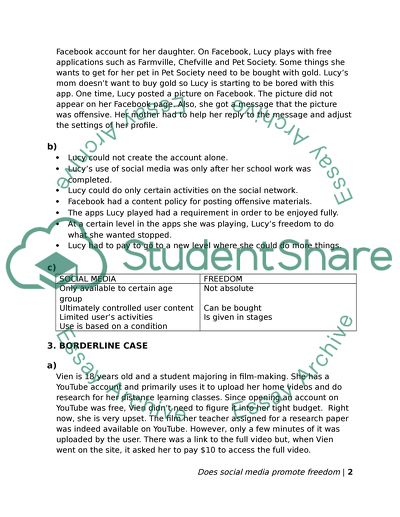Cite this document
(Does Social Media Promote Freedom Case Study Example | Topics and Well Written Essays - 3250 words, n.d.)
Does Social Media Promote Freedom Case Study Example | Topics and Well Written Essays - 3250 words. Retrieved from https://studentshare.org/media/1613400-does-social-media-promote-freedom
Does Social Media Promote Freedom Case Study Example | Topics and Well Written Essays - 3250 words. Retrieved from https://studentshare.org/media/1613400-does-social-media-promote-freedom
(Does Social Media Promote Freedom Case Study Example | Topics and Well Written Essays - 3250 Words)
Does Social Media Promote Freedom Case Study Example | Topics and Well Written Essays - 3250 Words. https://studentshare.org/media/1613400-does-social-media-promote-freedom.
Does Social Media Promote Freedom Case Study Example | Topics and Well Written Essays - 3250 Words. https://studentshare.org/media/1613400-does-social-media-promote-freedom.
“Does Social Media Promote Freedom Case Study Example | Topics and Well Written Essays - 3250 Words”, n.d. https://studentshare.org/media/1613400-does-social-media-promote-freedom.


